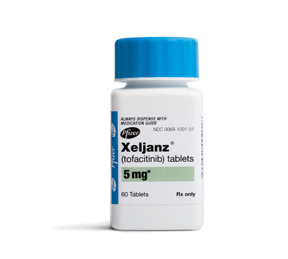The U.S. Food and Drug Administration approved AbbVie’s Skyrizi (risankizumab-rzaa) for the treatment of adults with active psoriatic arthritis (PsA), a systemic inflammatory disease that affects the skin and joints and impacts 30 percent of patients with psoriasis.
The United States Food and Drug Administration approved Pfizer Inc.’s Xeljanz (tofacitinib) for the treatment of children and adolescents 2 years and older with active polyarticular course juvenile idiopathic arthritis (pcJIA).
The U.S. Food and Drug Administration approved Daiichi Sankyo Co. Ltd.’s Turalio for adult patients with a type of rare, non-cancerous tumor affecting joints and limbs.
Novartis released positive data from the company’s FUTURE 5 clinical trial of Cosentyx (secukinumab) in psoriatic arthritis.


